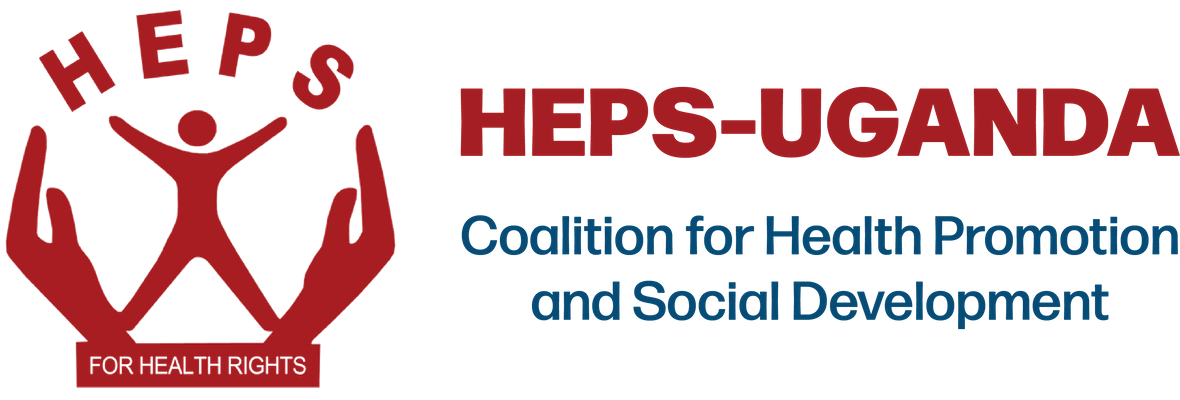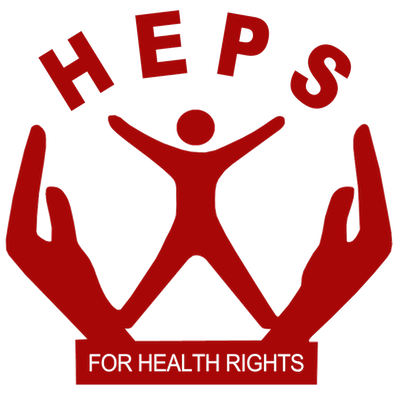From us,
HEPS-Uganda@25 participated in a stakeholders meeting organized by the Anti-Corruption Coalition Uganda. The purpose of this gathering was to address emerging challenges related to accountability and service delivery within the health sector. Key discussions focused on generating concrete commitments at both the national and community levels to close the accountability gaps and ensure the provision of quality healthcare services. Participants also examined critical issues such as inadequate financing for essential medicines, insufficient infrastructure, and shortages of human resources, aiming to develop strategies to effectively tackle these pressing health sector deficiencies.
HEPS-Uganda@25 participated in the Civil Society Organizations (CSOs) Retreat focused on the Local Government Pre-Budget Workshop for the Fiscal Year 2026/27. The event brought together 43 CSOs and CBOs from 13 sub-regions across Uganda at both national and regional levels. Participants collaborated to identify and propose critical local government priorities to be included in the National Budget Framework Paper for FY 2026/27. Various program groups developed draft position papers covering key sectors such as Human Capital Development, Agro-Industrialization, Transport, Land and Natural Resources, Regional Balance, Development Implementation, Social Services, and Trade. These collective efforts culminated in the creation of a final CSO Position Paper on Service Delivery in Uganda, which will be formally presented to the Ministry of Finance, Planning, and Economic Development by the Civil Society Budget Advocacy Group (CSBAG).
From our partners
Baylor Uganda Foundation has started refurbishing Nakaseke Hospital laboratory. The hospital administration and district leadership officially handed over the laboratory to the contractor. The project is funded by the US Centers for Disease Prevention and Control (CDC), and is a major step towards preparing the laboratory for international accreditation in line with ISO 15189:2022. This is under Uganda’s Laboratory Quality Management System (LQMS) strengthening efforts. Baylor has supported 22 out of 27 laboratories that have achieved and sustained their international accreditation. Nakaseke Hospital laboratory is next.
Reproductive Health Uganda (RHU) took part in the closing meeting of The Right Here Right Now Project in Kapchorwa District. This initiative was created to empower young people of all backgrounds to fully exercise their sexual and reproductive health and rights (SRHR) within gender-equitable societies, with youth leadership at the forefront. RHU has advocated for young people’s voices and choices, fostered public backing for sexual and reproductive health and rights (SRHR), shaped policies and legislation, and bolstered civil society’s capacity to uphold the rights of young people.
CEHURD hosted the 12th Annual National Inter-University Constitutional Law Moot Court Competition on 28-29 August 2025. The competition is designed to equip law students with hands-on experience in litigating health and human rights cases. Through this event, students develop critical skills in legal analysis, research, courtroom procedures, and professional conduct.
The Global Network of People Living with HIV (GNP+) convened the 13th PLHIV Networks Leadership Virtue Meeting, featuring a diverse lineup of speakers from various stakeholder groups. The meeting centered on reflections from people living with HIV regarding the International AIDS Society (IAS) Conference 2025 held in Kigali, Rwanda. Participants engaged in in-depth discussions about the outcomes and experiences of IAS2025, while also looking ahead to the upcoming AIDS 2026 conference to strategize future advocacy and collaborative efforts.
From your community
Jinja: Health officials in Jinja city say the rollout of a malaria vaccine is showing encouraging results, marking a step forward in the fight against one of Uganda’s deadliest diseases. The Ministry of Health began administering the R21/Matrix-M vaccine in April 2025, targeting children between 6 and 11 months. The vaccine developed in India and approved by the World Health Organisation is being introduced in selected districts as part of a national campaign.
Mityana: The Saving Lives and Livelihoods (SLL) project, implemented by Amref Health Africa in partnership with Africa CDC, the African Union, and the Ministry of Health – funded by the MasterCard Foundation – has transformed access to healthcare for hard-to-reach communities in Mityana District. The project provided life jackets to health workers from three health facilities serving island communities in Katiko, Bagwe, and Mabo Islands along Lake Wamala, ensuring their safety as they deliver essential services to the “last mile.”
From Uganda
HIV infection rate dropped in 2024: Uganda entered 2025 with cautious optimism in its long-running battle against HIV/Aids. Fresh national data shows that HIV prevalence among adults aged 15–49 fell to 4.9% in 2024, down from 5.1% in 2023 – continuing a slow but steady decline.
Why Uganda Must Act Faster Against Tuberculosis: Tuberculosis (TB) easily spreads through the air and thrives in communities where medical care is often sought too late and misconceptions about cough persist. One of the biggest challenges in the fight against TB is delayed diagnosis. Early symptoms, such as a persistent cough, fever, or fatigue, are often mistaken for common flu or seasonal coughs. Many Ugandans first turn to herbal remedies, only seeking professional help when symptoms worsen.
Anite Calls on NMS to Prioritize Ugandan-Made Medicines: In a strong push for economic self-reliance, Minister of State for Investment and Privatization Hon. Evelyn Anite toured MAVID Pharmaceuticals, a locally owned company making strides in producing high-quality medical products. During the visit, stressed that supporting local pharmaceutical manufacturers is critical for boosting the economy and advancing the government’s Buy Uganda, Build Uganda (BUBU) policy.
Govt Orders Health Facilities to Maintain Stock of Uterus-Contracting Drugs: The Ministry of Health has directed all health facilities across Uganda to ensure they maintain adequate stocks of essential medicines such as oxytocin, which are critical in preventing maternal deaths caused by excessive bleeding after childbirth. Permanent Secretary Diana Atwine, in a message shared on the Ministry’s official X account on Wednesday, stressed that no health facility should run out of these lifesaving drugs, which help contract the uterus and reduce the risk of postpartum hemorrhage (PPH).
From the region
Africa CDC, WHO launch new cholera campaign: Africa is facing a significant cholera challenge, with 82% of global cases and nearly 94% of cholera-related deaths occurring on the continent. In response, Africa CDC and WHO have launched a new six-month Continental Cholera Emergency Preparedness and Response Plan. This plan, led by President Hakainde Hichilema of Zambia (the African Union’s Cholera Champion), aims to strengthen coordination, surveillance, and vaccination efforts to prevent a projected surge of cases.
WHO, IVI strategic collaboration in support of vaccine equity, local production: The World Health Organization (WHO) Regional Office for Africa and the International Vaccine Institute (IVI) have signed a Memorandum of Understanding (MoU) to deepen their strategic collaboration in support of vaccine equity, local production, and health innovation across the region. Signed on the sidelines of the Seventy-fifth Session of the WHO Regional Committee for Africa, held in Lusaka, Zambia, 25-27 August 2025, the MoU reflects a shared commitment to strengthening regional capacity for vaccine research, development, and manufacturing – critical pillars for health sovereignty and pandemic preparedness.
Global health security
Malaria exposure may have led to mild COVID-19 in Africa: Many African countries reported lower COVID-19 severity rates than their counterparts in Europe and North America. Dr. Jane Achan, a pediatrician and Principal Advisor at Malaria Consortium who oversees research across Africa and Southeast Asia, has hypothesized an unexpected relationship between malaria exposure and COVID-19 outcomes.
US suspends Chikungunya vaccine: US health authorities have suspended the license for the lxchiq vaccine against the chikungunya virus following reports of serious adverse events. LXChiQ is one of just two vaccines approved by the US Food and Drug Administration for mosquito-borne viruses. This mainly occurs in tropical and subtropical regions, but has recently been discovered in countries worldwide. French company Valneva obtained US approval for the vaccine in 2023, but reports of side effects have prompted reviews, in particular over its use in older patients, including by the European Medicines Agency this year.
Cholera outbreak kills over 60 in Eastern Chad: At least 63 people have died following a cholera outbreak in eastern Chad. A total of 938 suspected cases have been recorded, 52 samples analysed, and 39 cases confirmed in Ouaddai Province, where the outbreak has been ongoing since July. The government has ramped up efforts to curb the spread of the disease, including scaling up water, sanitation, and hygiene interventions. Authorities also called for vigilance and strict adherence to hygiene measures to slow the spread of the disease.







